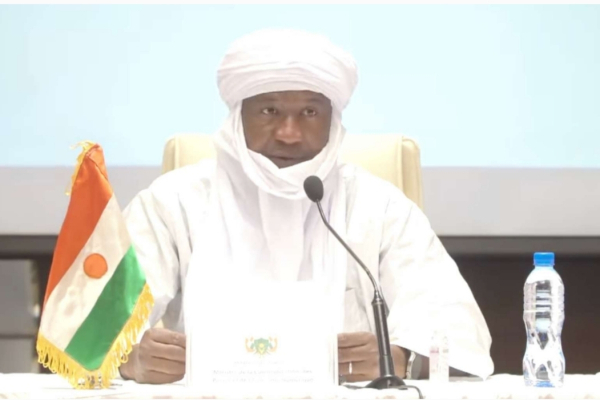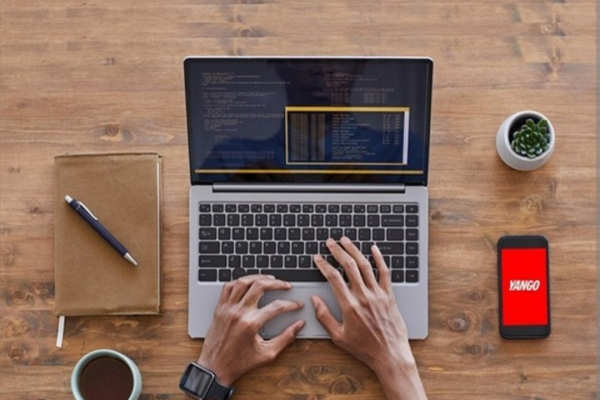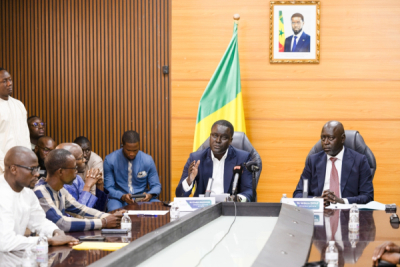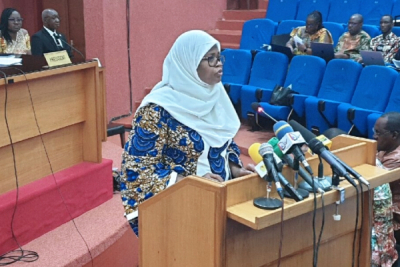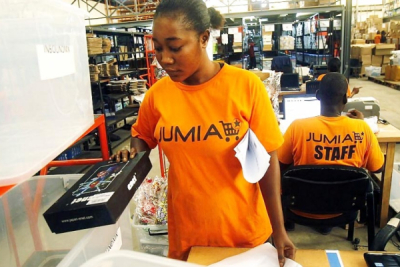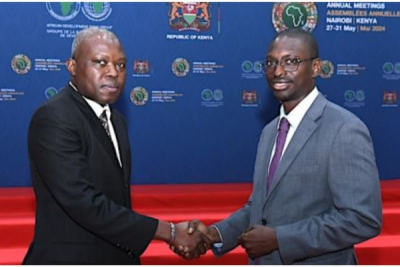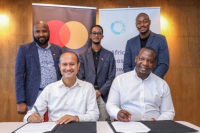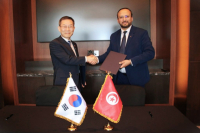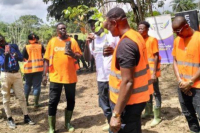
Tech (1151)
African countries are experiencing a substantial lag in digital development, a situation attributed to various factors. Effectively addressing these delays requires a clear understanding of these underlying issues.
Niger's Minister of Communication, Posts, and Digital Economy, Sidi Mohamed Raliou, officially launched the Digital Economy Diagnostic of Niger (Niger DE4A) on Wednesday, June 12th, in Niamey.
This initiative aims to comprehensively assess the current state of digital services penetration and usage within the country. "The evaluation will provide policymakers with actionable and prioritized recommendations to accelerate the digital transformation of Niger's government and its socio-economic landscape," emphasized the Ministry of Digital Economy.
The program, supported by the World Bank, aligns with broader efforts to assist African nations in implementing the African Union's Digital Transformation Strategy. This strategy seeks to equip every individual, business, and government body on the continent with the necessary digital skills by 2030, ultimately contributing to lifting Africa out of underdevelopment.
The digital economy diagnostic will unfold in three key phases. The first phase involves consultations with relevant stakeholders to gather essential data. This will be followed by the development of a detailed report outlining current challenges and opportunities in Niger's digital landscape. Finally, the program will propose concrete strategies and measures to maximize the country's potential for digital development.
The overall goal of the assessment is to identify and address obstacles hindering Niger's digital progress. Key challenges include insufficient technological infrastructure, limited digital skills among the population, and restrictive regulations. Overcoming these hurdles will not only enhance government efficiency but also stimulate innovation and drive economic growth in Niger.
Samira Njoya
In Côte d’Ivoire, digital talents, particularly data analysts, are among the most sought-after in the job market. To strengthen the workforce in this sector, Yango continues to pursue targeted training initiatives.
Ride-hailing platform Yango announced the expansion of its Yango Education program on Wednesday, June 12. The initiative provides free online introductory data analysis courses to Ivorian citizens aged 18 and over who have completed their basic education. The courses are designed by Yango engineers.
"This expansion allows us to offer free access to these courses to a wider community," said Kadotien Soro, Yango's National Director in Côte d'Ivoire. "We believe education is key to driving innovation and creating growth opportunities in the digital economy."
The program offers an 80-hour online data analysis course in Python and SQL, delivered over a one-month period. Yango will select over 1,500 students throughout the year through application reviews and personal interviews. Priority will be given to those aiming for careers in data analysis. The program is also open to Yango's partner drivers, couriers, and their families.
This initiative builds on Yango's commitment to fostering African entrepreneurship by equipping young people with skills to collect, analyze, and visualize data for business development. The first phase of the program benefitted approximately 250 participants.
Samira Njoya
Modernizing the administration to improve efficiency and equip it for the challenges of the new economy is a key focus for Senegal's President, Bassirou Diomaye Faye. President Faye is committed to implementing reforms that will optimize governmental effectiveness in this vital area.
Senegal Numérique SA (Sénum SA), the state-run agency responsible for managing Senegal's digital infrastructure, has a new leader. Isidore Diouf (pictured right) took the helm on Friday, June 7, succeeding Cheikh Bakhoum (pictured center) who served for nearly a decade (9 years, 11 months).
Diouf, tasked with executing President Bassirou Diomaye Faye's digital policy, outlined his strategic vision. He views digital technology as an engine for development across various sectors, including economic, industrial, healthcare, and education. He positions Sénégal Numérique, designated a "strategic state enterprise," as central to this transformation.
Diouf identified key elements for success: building robust and secure digital infrastructure, acting as a central hub to coordinate government digital programs, fostering collaboration with Information Systems Departments (DSI) within the government, and establishing strong partnerships with stakeholders in the digital space.
Diouf will build upon the accomplishments of his predecessor, Bakhoum, whose initiatives have positioned Senegal as a leader in the West African digital landscape. Notable achievements include the Smart Senegal project, the deployment of nearly 4,400 kilometers of fiber optic cable, the SHARE submarine cable, the construction of the national data center in Diamniadio (commissioned in 2021), and the digitization of numerous administrative procedures.
The new director's focus is on bridging the digital divide within Senegal and diversifying state revenue. According to official 2021 statistics, the digital economy currently contributes about 3.3% to GDP, while internet penetration sits at roughly 46%. The Sénégal Numérique 2025 (SN2025) strategy aims to increase the digital economy's share of GDP to 10%.
Samira Njoya
Digital transformation is a key focus of the development initiatives launched by the Burkinabé government. Ouagadougou aims to rely on World Bank assistance to successfully implement its digital strategy.
Burkina Faso is poised for a significant leap forward in its digital transformation journey. The Transitional Legislative Assembly (ALT) on Tuesday, June 11th, approved a $150 million loan from the World Bank's International Development Association (IDA) to fund the Digital Transformation Acceleration Project (PACTDIGITAL).
This ambitious project aims to bridge the digital divide in Burkina Faso by improving accessibility and adoption of digital services nationwide. The focus will be on reaching underserved areas, particularly rural communities, and marginalized groups.
"PACTDIGITAL will directly benefit a wide range of individuals," explained Minister of Digital Transition, Posts, and Electronic Communications, Aminata Zerbo/Sabane. "This includes women, youth, people with disabilities, internally displaced persons, and their host communities. Additionally, public employees - civil servants, teachers, and trainers - will gain valuable digital skills. The project also extends to private companies, formal and informal training institutions, local incubators, and associations. Notably, PACTDIGITAL covers the entire country, with security considerations factored in."
Building upon the successes of the West Africa Regional Communications Infrastructure Project (WARCIP - BF) and the e-Burkina project, PACTDIGITAL will serve as a springboard for further digital initiatives in Burkina Faso. The IDA funding is a critical step towards closing the country's significant digital divide. Official figures show a low mobile connectivity index of 26.2 in 2018. Additionally, 3G and 4G mobile network coverage rates remain low compared to neighboring countries, sitting at 64.3% and 41.5% respectively in 2022.
Samira Njoya
Jumia, which achieved unicorn status in 2016, has established itself as a leader in the African ecommerce sector. The startup is setting its sights on further growth in Nigeria and Morocco.
Last week, e-commerce platform Jumia announced the opening of two new integrated warehouses in Lagos, Nigeria, and Casablanca, Morocco, aiming to bolster future growth and meet rising demand across the continent.
The Casablanca facility spans 5,000 square meters and will house over 300,000 products. Jumia, which became Africa's first unicorn startup (valued over $1 billion) in 2016, did not disclose details on the capacity of the larger 30,000-square-meter Lagos warehouse.
This expansion aligns with Jumia's strategy to solidify its position as Africa's e-commerce leader. Following its 2016 unicorn status, Jumia made strategic adjustments, including exiting the Jumia Food venture in 2023 due to operational and macroeconomic challenges across its seven markets.
The new warehouses are expected to significantly enhance operations in both Nigeria and Morocco, leading to improved efficiency, cost savings, and faster delivery times. Notably, Partech Africa data shows a 53.29% decline in African e-commerce startup funding in 2023 compared to 2022, reaching $298 million.
Adoni Conrad Quenum
The African Development Bank, in its efforts to support African countries in their digital transformation process, is entering into various strategic agreements.
The African Development Bank (AfDB) and U.S. tech giant Intel have joined forces to equip 3 million Africans and 30,000 civil servants with artificial intelligence (AI) skills, according to a press release issued on June 7. The partnership was finalized during the recent AfDB Annual Meetings in Nairobi.
"With advancements in digital technology, our world is rapidly evolving, and so is our youthful population, projected to reach 830 million by 2050. To develop skills on a large scale and at the necessary speed, we need everyone's cooperation," said Ousmane Fall, Acting Director of Industrial and Trade Development at the AfDB. (Photo, Right)
"The Bank is thrilled to collaborate with Intel to work towards this shared commitment. Together, we are shaping the digital future of Africa and empowering our youth," Fall added.
Acquiring digital skills has become essential with the ongoing technological revolution worldwide. African countries are not left out of this revolution, and with the support of various institutions such as the AfDB, numerous projects are being implemented. In May 2024, the AfDB partnered with the American company Mastercard to implement the MADE (Mobilising Access to the Digital Economy) initiative, which aims to provide digital access to 100 million African people and businesses over the next decade.
This new initiative will, among other things, accelerate growth and productivity by positioning Africans as active contributors to the fourth industrial revolution in key sectors such as agriculture, health, and education, thereby disrupting traditional growth cycles.
Adoni Conrad Quenum
With the rise of digitalization, content creators have become an influential segment of the digital economy. However, they face challenges in financial management. Addressing these unique financial needs is crucial for African development, making initiatives like this highly significant.
Mastercard has invested $2.04 million in a partnership with Wowzi, Africa’s influencer marketing platform, and Masria Digital Payments (MDP), Wowzi announced on June 6. The five-year initiative aims to enhance financial management for content creators, providing them with advanced digital tools to manage their earnings.
“Our objective is to empower these digital trailblazers with the financial tools and security they need to thrive in the dynamic payments landscape. This investment aligns with our vision to promote financial inclusion and drive innovation in an ever-evolving digital economy,” said Shehryar Ali, senior vice president and country manager for East Africa and Indian Ocean Islands at Mastercard.
Mastercard’s investment supports the gig economy by offering digital card products (watch and ring cards) for secure and convenient transactions. These cards will allow content creators to receive payments directly from brands, fans, or sponsors, bypassing traditional gateways. Meanwhile, Wowzi will leverage its network to boost content creators' visibility and profitability and MDP will manage the technical aspects, ensuring secure and seamless transactions.
The IFC report "e-Conomy Africa 2020" reveals that Africa's internet economy could reach $180 billion by 2025, contributing 5.2% to the continent's GDP. This underscores the importance of Mastercard's investment in digital solutions for African content creators. This collaboration marks a significant step towards the future of digital finance, combining creativity and technology to empower content creators in Africa.
Hikmatu Bilali
The Tunisian government views 5G technology as a means to accelerate the digital transformation of various economic sectors, including agriculture, education, and transportation. The executive has set the launch date for ultra-high-speed internet in the country for November 2024.
Tunisia and South Korea agreed to collaborate on the deployment of 5G technology, according to a Memorandum of Understanding (MoU) signed by Nizar Ben Neji, Tunisia's Minister of Communication Technologies, and his South Korean counterpart, Lee Jong Ho.
The signing took place on the sidelines of the Global ICT Leaders Forum in Seoul, held alongside the first Korea-Africa Summit on June 4-5.
This MoU aligns with Tunisia's recently unveiled 5G roadmap. The roadmap targets September 2024 for granting licenses and November 2024 for the commercial launch of 5G services. In addition, Tunisian telecom operators have already conducted preliminary tests of the next-generation mobile technology.
The 5G partnership aligns with Tunisia's "National Digital Transformation Strategy 2025," which prioritizes accelerating administrative digitization, securing cyberspace, ensuring digital sovereignty, and fostering trust for successful digitalization projects.
The implementation of 5G is expected to pave the way for the development of smart homes, smart cities, e-learning, e-government, 3D video, telemedicine, virtual and augmented reality, streaming services, artificial intelligence applications, and the Internet of Things (IoT).
Isaac K. Kassouwi
After Asia and Europe, with expansions into the United Kingdom, Georgia, and Turkey, the Emirati startup OneClickDrive has decided to invest in a new continent. The company has chosen Morocco as the starting point for its African venture.
OneClickDrive, an Emirati car rental marketplace, is expanding its operations to Morocco, marking its first foray into the African market, a release dated June 3rd announces.
Based in Dubai, the startup is supporting its growth by investing in another continent after Europe and Asia. For its debut in the Moroccan market, it has launched services in eight cities: Agadir, Casablanca, Fez, Marrakech, Nador, Oujda, Rabat, and Tangier. Founded in 2015 by Mahesh Pagarani, OneClickDrive specializes in car rentals and leasing across a range of vehicles, from low-cost options to luxury cars.
In addition to its web platform, OneClickDrive offers a mobile app available on iOS and Android, which has already been downloaded more than 50,000 times according to Play Store data. After creating an account, users can access the start-up's fleet of over 5,000 vehicles.
OneClickDrive has partnered with more than 250 car rental providers in the cities where it operates to ensure its 100,000 monthly customers can find the right vehicle for their needs. It’s worth noting that African start-ups operating in the mobility segment raised $48 million in equity capital across 17 deals, according to data from the tech-focused investment fund Partech Africa.
Adoni Conrad Quenum
Africa, rich in natural resources and biodiversity, faces numerous major environmental challenges. Orange and its employees are committed to helping reduce these threats through various initiatives.
On Wednesday, June 5, Orange Middle East and Africa unveiled the Engage for Change program in collaboration with its employees to reinforce their ongoing commitment to corporate social responsibility (CSR). The program aims to positively impact society and the environment while enhancing team cohesion.
"This platform is a powerful tool for uniting our teams around shared values. Every initiative, every action taken by our employees demonstrates our collective ability to bring about significant change. We’re proud to see this commitment come to fruition and to witness the positive impact it generates," said Asma Ennaifer, Executive Director of CSR and Communication at Orange Middle East and Africa.
Through the interactive platform engageforchange.orange.com, employees are actively encouraged to participate in social and environmental initiatives that have a concrete and positive impact on our communities. These initiatives include local projects, partnerships, and eco-responsible actions. Encouraged actions encompass reducing carbon footprints, supporting local communities, promoting education and health, and engaging in sustainable projects.
Throughout the day on June 5, and across the region, several local initiatives were organized to demonstrate the tangible impact of the platform. In Mali, for example, a team of 200 Orange employee volunteers participated in the reforestation of an urban park dedicated to children by planting 1,000 trees, contributing to the fight against desertification and creating green spaces for the youth.
Additionally, other notable initiatives include awareness campaigns on the importance of recycling and electronic waste management, training workshops for young people on digital skills, and partnerships with local NGOs to support vulnerable populations. These collective efforts reflect Orange Middle East and Africa's commitment to playing an active and responsible role in sustainable development and the well-being of the communities it serves.
Samira Njoya
More...
Africa is experiencing a rapid surge in mobile usage. This growth brings several mobile security challenges that threaten both users and businesses.
Gabon's Ministry of Digital Economy and New Information Technologies announced a key partnership with Turkish group iF Elektronik Ltd. on Monday, June 3rd. The agreement, reached after extensive negotiations, paves the way for the implementation of the Central Equipment Identity Register (EIR) technology in Gabon.
The project includes enhancing the security of mobile devices such as phones and establishing a competency center. It aims to increase government revenue through additional taxes, combat phone theft and cloning by reducing the illegal market, create 30 jobs for Gabonese engineers with skill transfer at the project's inception, and eliminate smuggling and counterfeiting of mobile equipment.
The EIR will be fully funded by iF Elektronik Ltd., with no cost to the Gabonese government. It is expected to generate $38 million annually, with $26 million in tax revenue and $12 million in service fees. This initiative aligns with the Gabonese government's goal of promoting the development of the digital economy and strengthening the security of electronic communications.
The project's implementation is scheduled to begin within three months of signing the memorandum of understanding. This strategic partnership will enable Gabon to enhance the security of electronic communications, protect users from fraud and theft, improve the quality of telecommunications services, and offer a better user experience while stimulating innovation and economic growth in the information and communication technology sector.
Samira Njoya
African startups are critical drivers of economic and social progress across the continent. To unlock their full potential, they need a supportive environment, including access to funding, mentorship, and the resources they need to thrive.
AfriLabs, a pan-African network of technology innovation hubs, announced on Tuesday, June 4, a memorandum of understanding with the Korea-Africa Foundation (KAF), an initiative of the Korean government aimed at supporting partnerships with the African continent. This partnership aims to promote innovation and economic prosperity across Africa by supporting startups.
"At AfriLabs, we're dedicated to unlocking Africa's full potential and generating wealth through strategic alliances. This partnership unlocks a treasure trove of opportunities for startups, granting them access to a global network, invaluable resources, and unparalleled industry knowledge," AfriLabs stated on X.
As part of the partnership, AfriLabs and KAF will implement projects leveraging their respective expertise to foster a dynamic ecosystem that cultivates talent and promotes a strong entrepreneurial spirit. The goal is to empower the next generation of African innovators and entrepreneurs to build sustainable development.
The partnership comes on the eve of the Korea-Africa Young Startup Forum, which will be held today Wednesday, June 5, in Seoul. This event aims to strengthen cooperation between Korea and African nations by bringing together investors, startups, and support organizations from both continents.
The partnership is expected to enable startups within the AfriLabs network to benefit from Korea's digital experience. The country boasts an ultra-advanced technological environment that can serve as a model for African entrepreneurs. By combining their strengths, AfriLabs and KAF are confident that this partnership will significantly contribute to transforming Africa into a prosperous and innovative continent.
Samira Njoya
Digital inclusion is essential for achieving sustainable development goals and ensuring a prosperous future. In this context, Lesotho, in collaboration with international partners, is rolling out initiatives to bridge the digital divide.
The United Nations Development Programme (UNDP) and Lesotho's Ministry of Information, Communications, Science, Technology, and Innovation (MICSTI) have joined forces to launch a groundbreaking model for e-government service points. This initiative aims to accelerate digital transformation and enhance access to public services through digital channels.
The program empowers micro, small, and medium enterprises (MSMEs) to offer essential digital services within their communities. This approach addresses the digital divide, promoting greater digital inclusion across Lesotho. Developed by the UNDP Accelerator Lab as a pilot project, the model aligns with UNDP's broader strategy to expand digital access nationwide.
By establishing e-government service points, rural and remote communities will gain the ability to access vital government services like administrative transactions, digital payments, and information services. This eliminates the need for long journeys to traditional service providers, often located in distant areas.
This significant step forward aligns with the government's commitment to provide equitable access to public services for all citizens, particularly those in underserved regions. Minister of Communications, Science, and Technology Nthati Moorosi (pictured) announced plans to designate at least 40 schools and 10 postal service locations as e-government service centers.
The establishment of these service points is expected to bring a multitude of benefits. It will stimulate the local economy by empowering small businesses and creating new employment opportunities. Additionally, it will enhance public access to essential digital services, fostering financial inclusion and community empowerment. Furthermore, the initiative is expected to reduce the time and cost associated with accessing government services, ultimately improving the quality of life for citizens.
Samira Njoya
The Malagasy government is committed to ensuring the country benefits from the technological revolution. Alongside infrastructure development, it is also focusing on training a highly skilled workforce.
Madagascar is taking a step towards becoming a leader in artificial intelligence (AI) within the Indian Ocean region. On Friday, May 31, Malagasy Minister of Digital Development, Posts and Telecommunications Tahina Razafindramalo signed a partnership agreement in Marrakech, Morocco, with Professor Serge Miranda of the University of Côte d'Azur and École Supérieure des Technologies Industrielles Avancées (ESTIA) in France. The agreement launches a feasibility study for the establishment of an International Institute of Applied Artificial Intelligence for the Indian Ocean region.
According to the Malagasy Ministry of Digital Development, "the creation of this institute will stimulate innovation and economic growth in Madagascar, while providing increased opportunities in education and quality employment. This initiative also demonstrates that public-private partnerships can be beneficial for emerging countries."
The project involves a collaboration between DATUM Consulting - Groupe ArkeUp, ESTIA, and the Ministry of Digital Development. Aligned with Madagascar's Digital Strategic Plan (PSN) 2023-2028, the institute aims to position the country as a key player in AI within the sub-region. The PSN highlights a critical deficit of 40,000 technicians needed for successful digital transformation.
The feasibility study will assess the specific needs, required resources, and key implementation steps for the institute. It will also evaluate the economic, educational, and social impacts of the initiative. This evaluation will consider the challenges and opportunities of integrating AI into various economic and social sectors across Madagascar. This ambitious project aspires to not only bridge the technical skills gap but also establish Madagascar as a center of excellence in AI for the Indian Ocean region.


